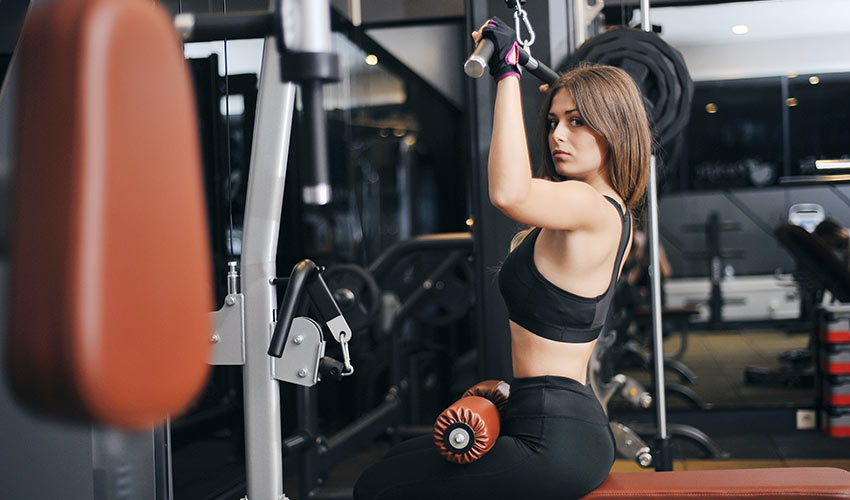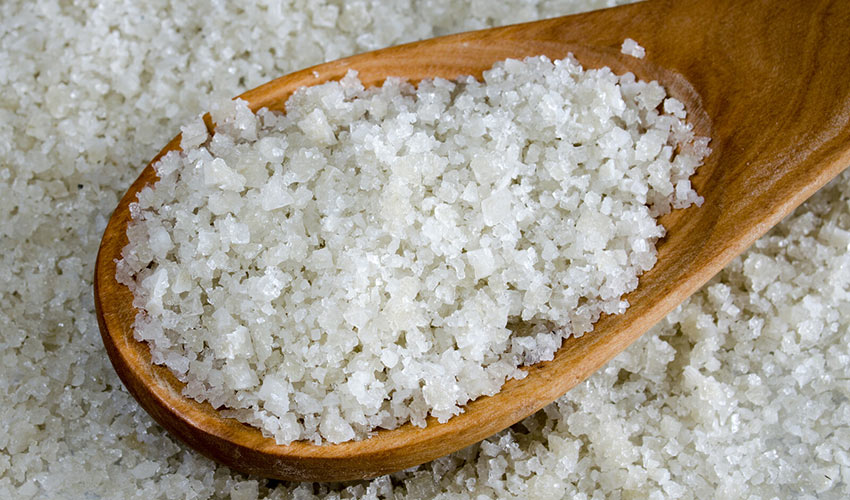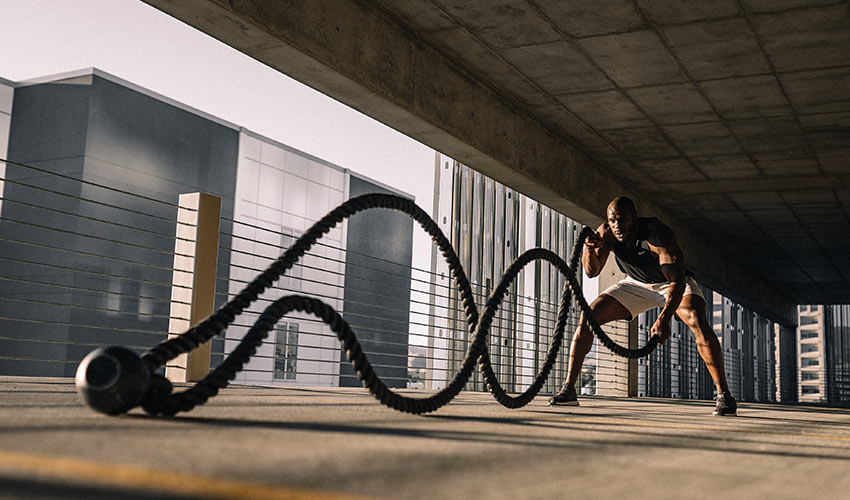Celtic Sea Salt - Essential when Exercising
I'm excited to tell you about using Celtic Sea Salt during, after and even before exercise. I realised I'm on to something after the changes I noticed on the first time. I wish everyone could give this a go, I believe, injuries and illness related to exercise and training would be cut in half if they follow what I did, and the awful thing to admit is the first person I saw recommend this was Alan Sugar about 20 years ago whilst on TV showing his home gym. For some reason I remembered it, then Celtic Sea Salt, a real salt that's good for you, he was using table salt. The world of sports supplements is similar but then completely different to the way people who don't train use supplements. You can spend a fortune to cover all sorts of essentials but never will you see Salt sold or recommended. Celtic Sea Salt is obviously the one you need, but it's still cheap, very cheap compared to the average training supplements. Perhaps lots of people do know and want it kept a secret. Well who knows, you're in the right place so right now, let's get straight to the incredible point and start changing your life Today/Now!
If you hit the gym regularly, take part in marathons or go on long hikes, then you’re sweating, sometimes you might not even notice. But unless you being a sloth around the house or stuck at a desk for a hours you will be sweating it out more than the average person and it is of utmost importance that you increase your salt intake! But But But! you replace it with real Salt that's good for you, Celtic Sea Salt, more on why Celtic Sea Salt later. So the conventional wisdom suggests limiting salt intake as it causes blood pressure problems and can lead to heart attacks. If you’re a hardcore fitness enthusiast or someone who sweats a lot because of their job demands or whatnot, then a lack of salt (AKA sodium chloride) can actually do more harm than good. When I write this I even think of one of my favourite ever comics Rik Mayall, and how he passed shortly after going for a run, being over-weight. Was he replenishing with decent Salt? I doubt it, who knows what exactly happened but how many times have we seen "healthy" runners pass away, not only ones who appeared healthy, but ones who were also young. This is a revolutionary act to get Celtic Sea Salt out to everyone who trains.

What Salt Does
Salt plays a really important role in the body, and there are a multitude of reasons why you need to get more of it in your diet. So get ready to clear up any misconceptions you may have about sodium. Firstly, the water levels in the body are regulated by an equality of salt. If you don’t have enough salt, your body will hold on to the liquid it has rather than disposing of it through urine or sweat, which increases blood pressure, contributes to artery plaques, among other cardio’s and puts more of a strain on the kidneys. Those who exercise a lot need to watch out for Hyponatremia, which is water toxicity. It occurs when someone drinks too much water and doesn’t come close to filling their sodium tank, ultimately diluting it massively clinging out devastating effects like headaches, confusion, and sickness- to name just a few. It can even lead to paralysis or come at it. If you feel a headache creeping up and exercising on grit-envision electricity, there may just be a sodium deficiency glaring back, at which point you must restore focus away from water-replenishment and quickly allow the intensity of workouts to carry their way over to the kitchen. Maintaining hydration is key, especially by refueling or replenishing with a good quality sports drink that replenishes sodium levels in the body immediately.
Secondly, sodium affects the muscle conditioning. It ensures that muscles fire correctly, which is what basically maintains balance, alignment, and helps prevent muscle fatigue and cramps. Additionally, the Institute of Medicine recommends that those who do a demanding amount of endurance exercise such as marathons (or jobs where sweat is prompted too often, such as construction) as "heavy sweaters". This means you should include between 1-3 g per hour spent sweating, despite this being well in excess of the average daily recommended intake of around 13g, varying upon indication. This holds true despite down-sizing intake of both fibre, red meats, and drinking tons of water to really energise. Oh I want to mention whilst on sweat, if you don't sweat enough you might be Iodine deficient, I can't tell you how many people have messaged us with this issue. So answer to that question there. Anyway as I was saying, if exercise moves your boat, spare yourself the ensuing ruffled feeling by downing salty pretzels after/before activity workouts into recreation or/invigorating your double-pimento-enveloped sandwiches (like salami or bacon exclusively served salty). So all you have to do is make sodium your best friend! Indulge in saltier foods right? No because tablesalt is not good for you, so Sea Salt? nope it's better but it's still dried out and processed, no Magnesium (totally essential during exercise). So what's the answer? Celtic Sea Salt, but exactly why is it so much better?

Why use Celtic Sea Salt
Celtic Sea Salt is a specially harvested salt that is known for its unique flavour and nutritional properties. It has become increasingly popular in recent years as people have discovered the many benefits of this salt. But what makes Celtic Sea Salt so special? First of all, Celtic Sea Salt is harvested from the briny waters off the coast of France. The salt is extracted from tidal ponds that are specially designed to replicate the natural salt marshes that exist in the area. This means that Celtic Sea Salt is completely natural and free of any harmful chemicals or additives. Another reason why Celtic Sea Salt is so special is due to the way it is processed. Unlike many other types of salt, which are heavily processed and stripped of their natural minerals and other beneficial elements, Celtic Sea Salt is minimally processed. This “wet” salt is carefully hand harvested, sun dried, and stone ground to preserve its natural trace minerals.
One of the key nutritional benefits of Celtic Sea Salt is its high mineral content, and as you know or now know, sweating / training means you lose minerals. Celtic Sea Salt contains over 80 trace minerals that are essential for good health. Some of these minerals include magnesium, iron, potassium, and iodine. These minerals are not only important for supporting overall health, but they can also improve the flavour and texture of food. Replacing ordinary table salt with Celtic Sea Salt can help heart health, what causes heart issues? Magnesium deficiency? what is the biggest killer? Heart disease? What does everyone use on their food? Salt, yet the one nearly everyone is using is table salt... So no magnesium and more risk of deficiency. What a conspiracy? well who knows, but now you're in the elite part of society that knows. Real salt is good for you, and it's Celtic Sea Salt, so tell everyone! Celtic Sea Salt is also a versatile ingredient that can be used in many different ways. Whether you’re using it to flavour your favorite dishes, mix it into your morning smoothie, or even use it to make a homemade spa bath soak, there are endless possibilities for incorporating this salt into your life. It is a great choice for anyone looking for a natural, mineral-rich salt alternative that supports good health and culinary creativity.

Other Essentials during Training / Exercise
So I think you'll know now that recovery from exercising is just as important as the workout itself. Replenishing the body with nutrient-dense foods and hydrating with the right drinks is necessary to stay fit and maintain good health. Everywhere you'll hear drink loads of water in order to hydrate the body. True water is essential and helps in replenishing the fluids lost during exercise through sweat. This is Ancient Purity and we want you to thrive! So first off make sure it's pure, clean water, (I choose Gravity Filtered) and then add a pinch of Celtic Sea Salt, now you have the best Mineral Water ever. There are other options such as electrolyte-rich drinks but most of these sports drinks are loaded with sweeteners, non pasteurised Coconut Water could be a good option.
Protein is also a crucial component to consume post-exercise. When exercising, the muscle fibres break down and need repair and rebuilding to help strengthen them. Consuming protein after a workout aids in recovery by rebuilding muscle fibres and increasing muscle synthesis. Examples of high protein foods include lean meats like chicken or turkey, fish, eggs, or choose a quality Vegan Protein blend. Carbohydrates are a great source of energy and they are ideal for after exercise, especially those with moderate to high intensity. Carbs aid in replenishing muscle glycogen, which gets depleted during exercise, leading to fatigue and muscle cramps. Fruits, white and sweet potatoes, quinoa and oats are all great carbohydrate sources. Foods rich in vitamins and minerals are also essential after exercise, as they assist in restoring lost nutrients. Many workouts can induce muscle inflammation, causing tissue damage. Vitamins C and E are antioxidants that work to prevent oxidative damage and increase recovery. Foods like bell peppers, dark leafy vegetables like spinach, berries, avocados, and nuts are abundant in these vitamins. For me personally I always take a Multi Vitamin & Mineral Supplement to cover all the gaps.
Lastly, I'm going to repeat this incase you skipped to the end. If training or even light exercising on a hot day, anything that's caused sweating, consume Celtic Sea Salt. The Sodium present in it helps retain water in the body and can also prevent dehydration, which can cause leg cramps and increased heart rate. With careful meal planning and selection, foods and drinks consumed post-workout can significantly improve physical recovery, keep you performing at your best and lead to a healthy lifestyle. Eat nutritious foods for the kidneys and your get the requirements in sodium from Celtic Sea Salt and watch your muscles spring back to life. Avec extra sel, please!
Essentials Set on a Training / Exercise Day
- 1 small pinch of Celtic Sea Salt on tongue.
- 1 small pinch of Celtic Sea Salt in Clean, Pure Water.
- Lean Protein or clean no sweetener or GMO Vegan Protein.
- Complex Carbohydrates.
- Vitamin-rich fruits and vegetables.
- High Quality Food-Based Multi Vitamin & Mineral Complex.
- Vitamin C / Vitamin E Supplements.
- Some Deep Concious Breathing.
- Positive Vibes, make someone feel good.






















